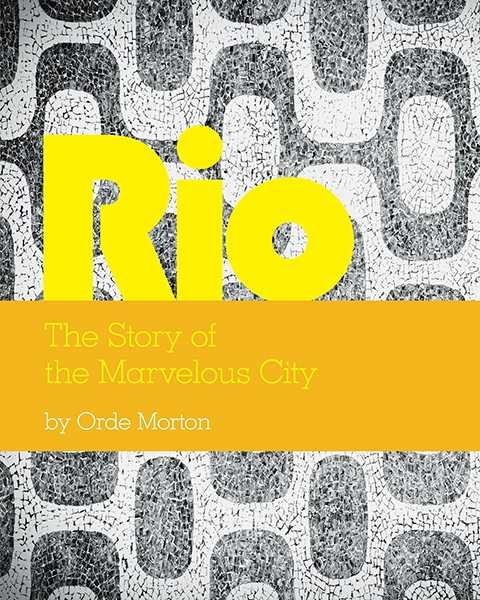Rio
The Story of the Marvelous City
This is a comprehensive and well-researched history of one of South America’s most exciting cities.
The city of Rio de Janeiro is having the international spotlight shone on it thanks to Brazil’s many recent achievements and the fact that Rio is hosting the 2016 Olympics. Thus, it’s fitting that a book comes along to explore Rio’s history in-depth: Orde Morton’s Rio: The Story of the Marvelous City. Starting right from Rio’s beginnings, covering all major historical events up to the present day, and written without pretense but with much enthusiasm and clarity, Rio educates and entertains simultaneously.
Morton has clearly done his research on the subject. Right off the bat, he breaks down Rio in terms of its colonization and geography. He articulates everything from the first indigenous settlers in Rio—the Tupi from Amazonia—to the coming of the Portuguese in the form of Dom João and Queen Maria I, escorted by their British allies.
Along the way, Morton inserts details about Rio that are fascinating and explanatory. Emphasizing tribal influence, he points out how the word Carioca, a long-standing term for Rio residents, may come from the Tupi word kari oka or “white man’s house.” He also explains how the early organization of the city and its aqueduct system are still referenced in Rio’s modern zoning.
Issues like inner-city crime and poverty are prominent in Rio today. Morton’s text is helpful here in understanding how sociopolitical matters have long been in the blood of Rio’s social landscape, right from the earliest sugar harvests where slaves were imported from Africa to compensate for the lack of Tupi labor. As Morton notes, “real profits were to be made. … Finding labour was trickier.” And since Rio was a port city right in the heart of South America, it became a smuggler’s paradise.
Aside from the standard sociopolitical histories, the book digresses to show how Rio de Janeiro engaged the rest of the world with now-famous movies and music. Morton points out how the first bossa nova record, “Chega de Saudade,” and the cinema classic Orfeu Negro (Black Orpheus)—both Rio pieces still influential in their respective fields today—introduced the rest of the world to the best of Brazilian culture in the late 1950s.
A key text for any traveler or student researching Rio de Janeiro, Rio is just as engaging for nonfiction lovers. The history and lifestyle of Rio, delivered with easy prose, is memorable on its own. With the 2016 Olympics on its way, Rio the book gives Rio the city that much more excitement.
Reviewed by
James Burt
Disclosure: This article is not an endorsement, but a review. The publisher of this book provided free copies of the book and paid a small fee to have their book reviewed by a professional reviewer. Foreword Reviews and Clarion Reviews make no guarantee that the publisher will receive a positive review. Foreword Magazine, Inc. is disclosing this in accordance with the Federal Trade Commission’s 16 CFR, Part 255.

